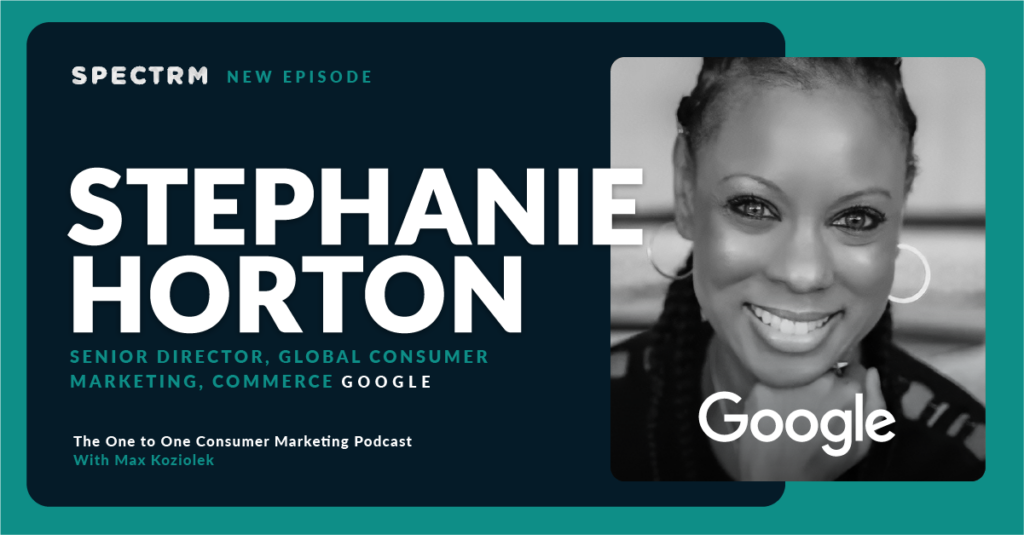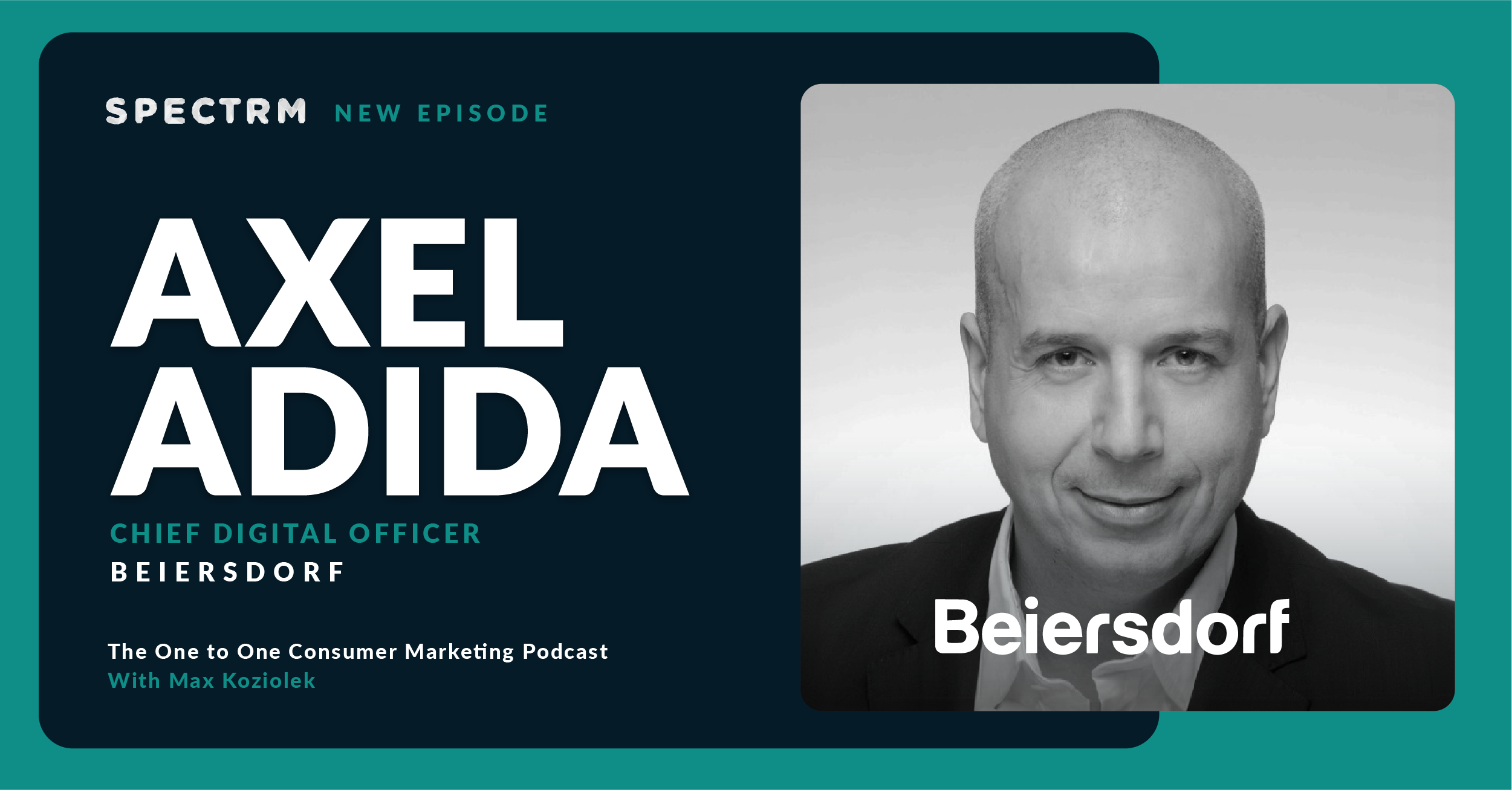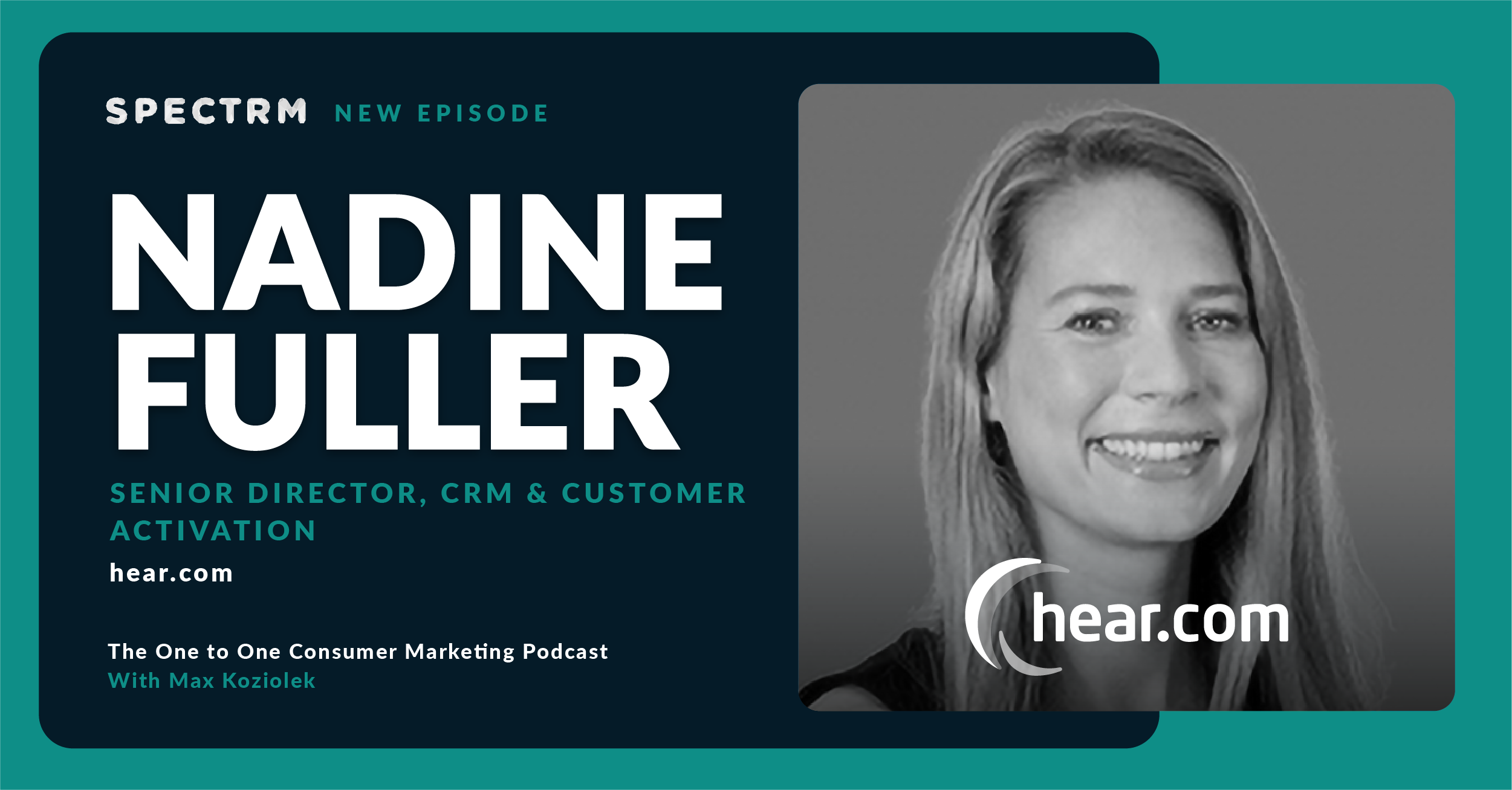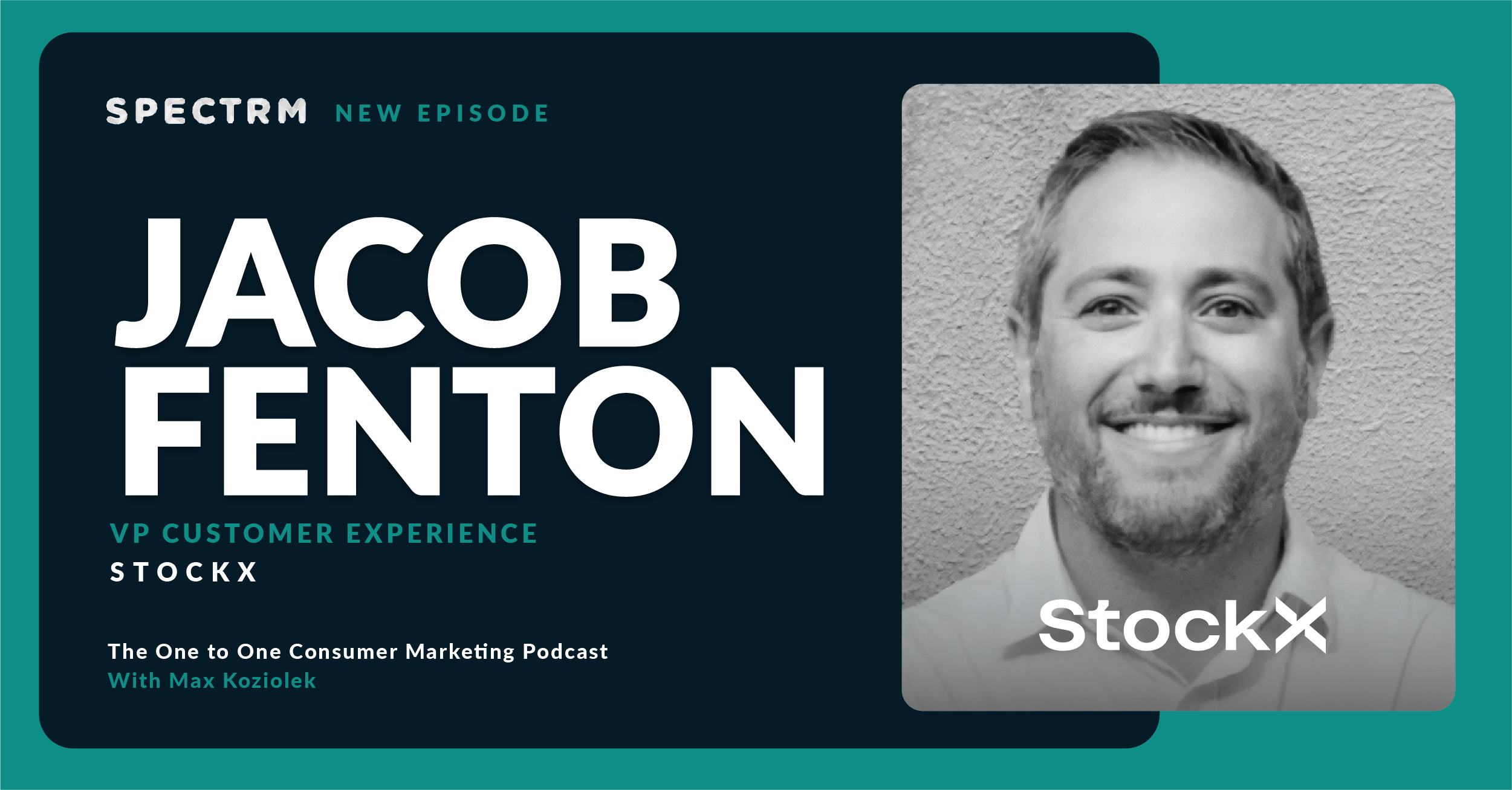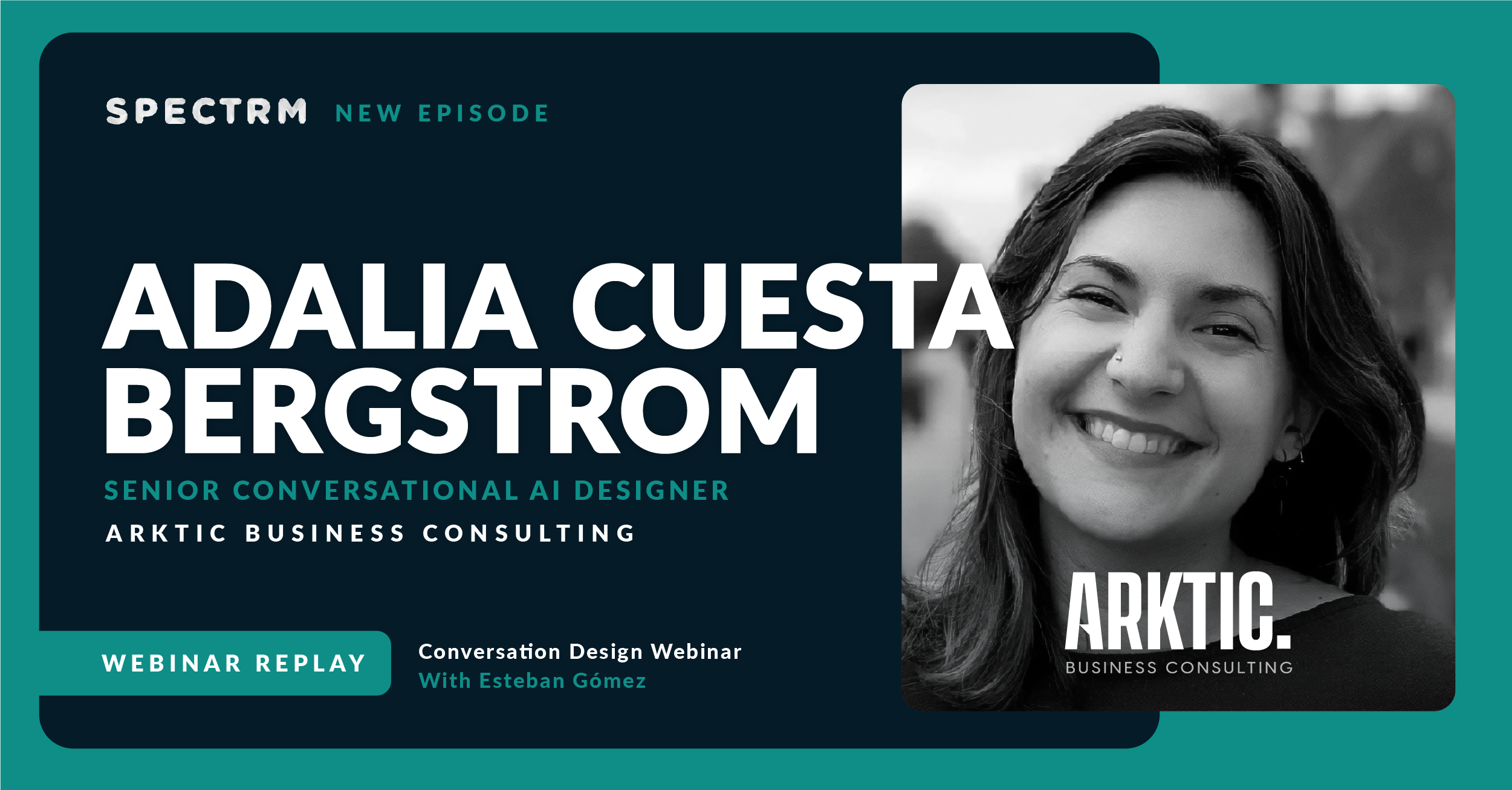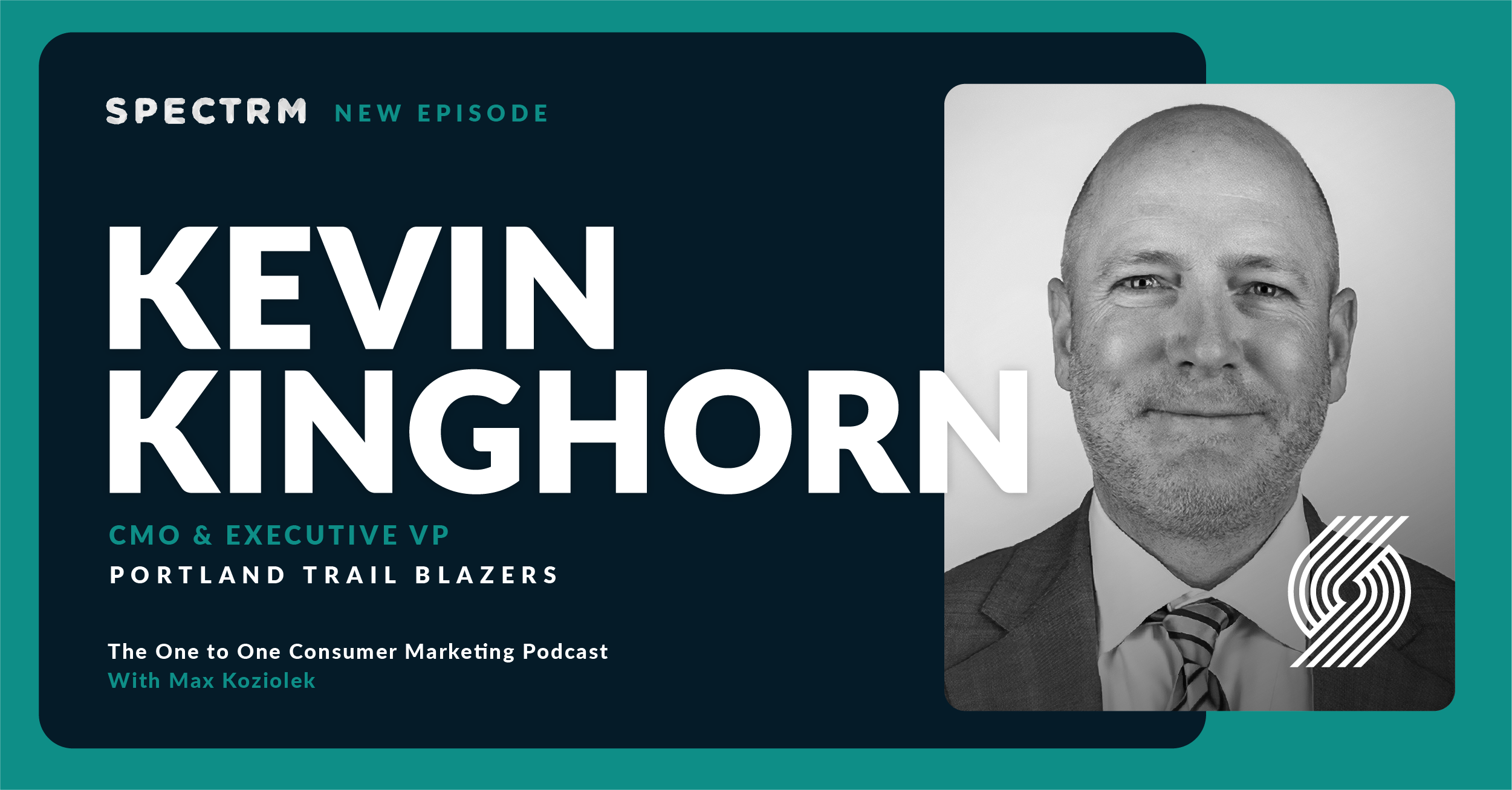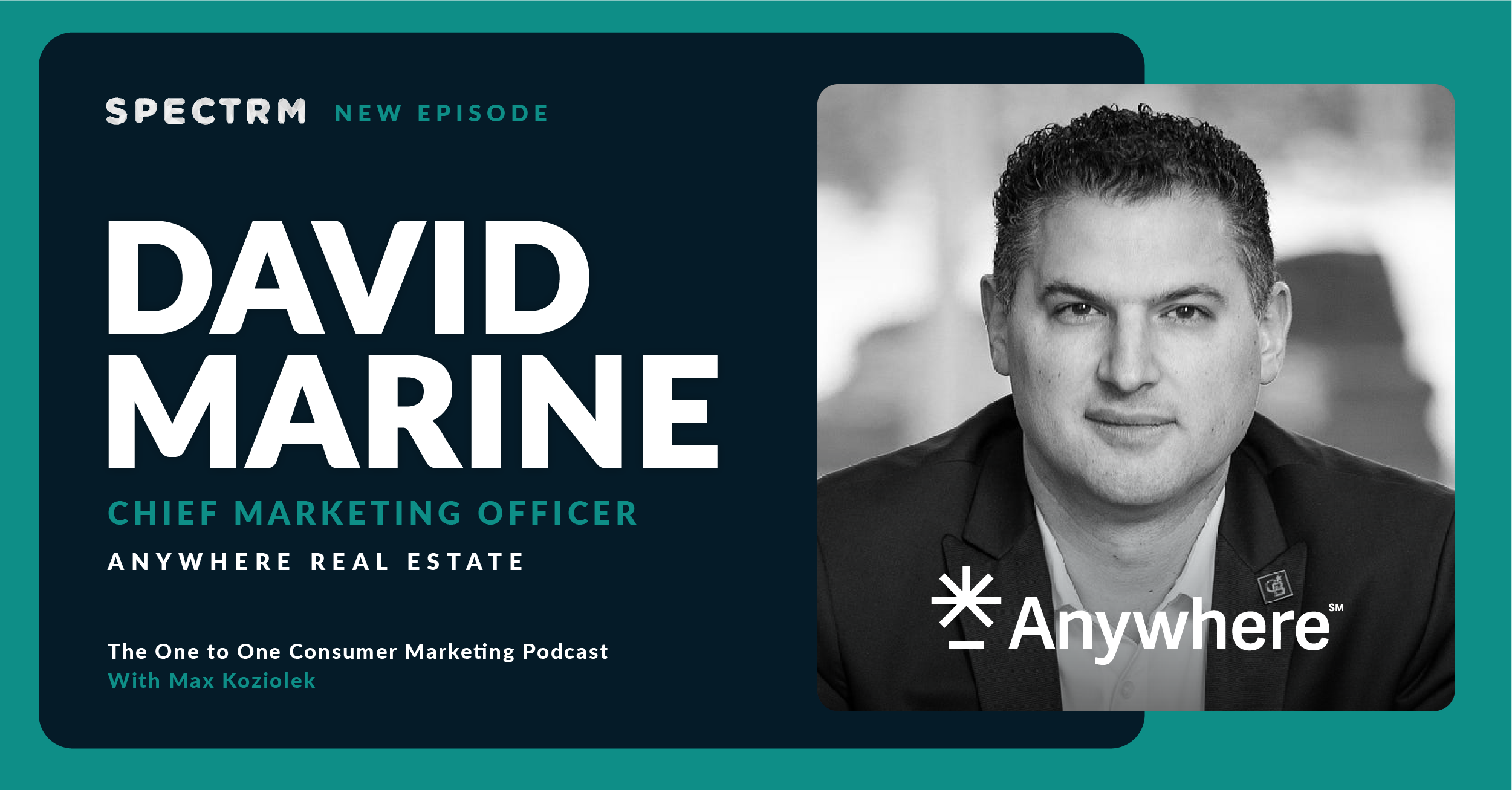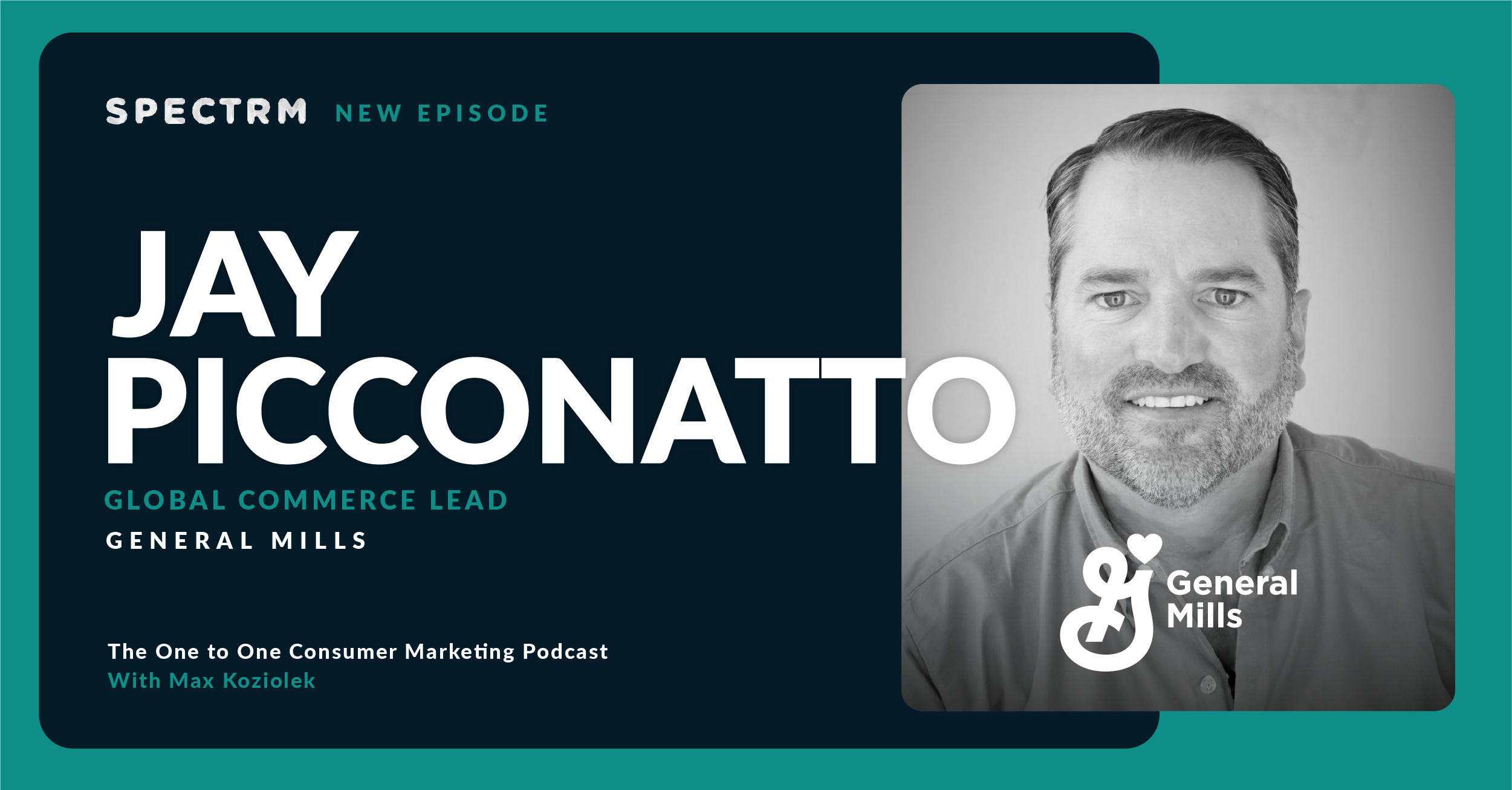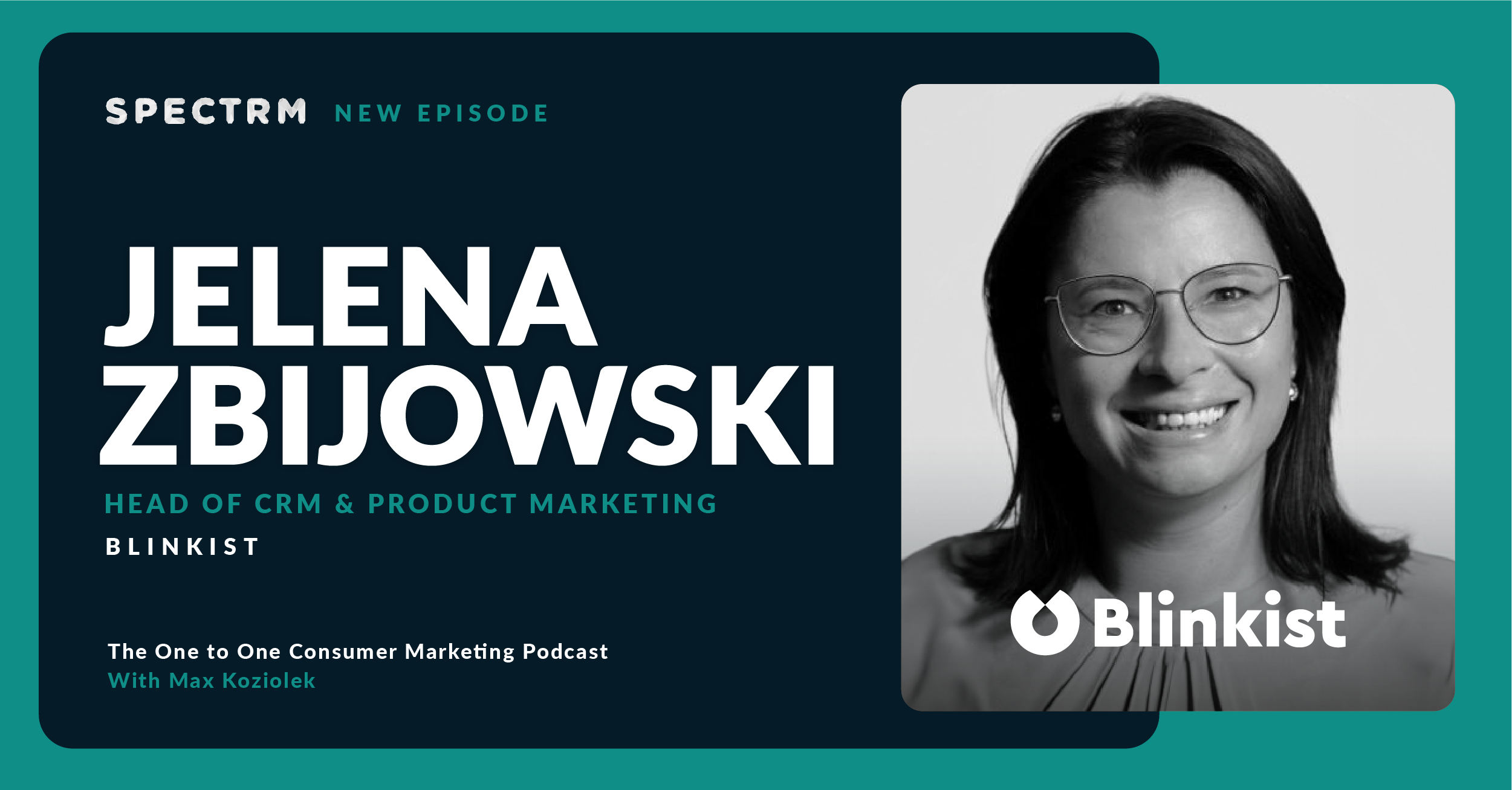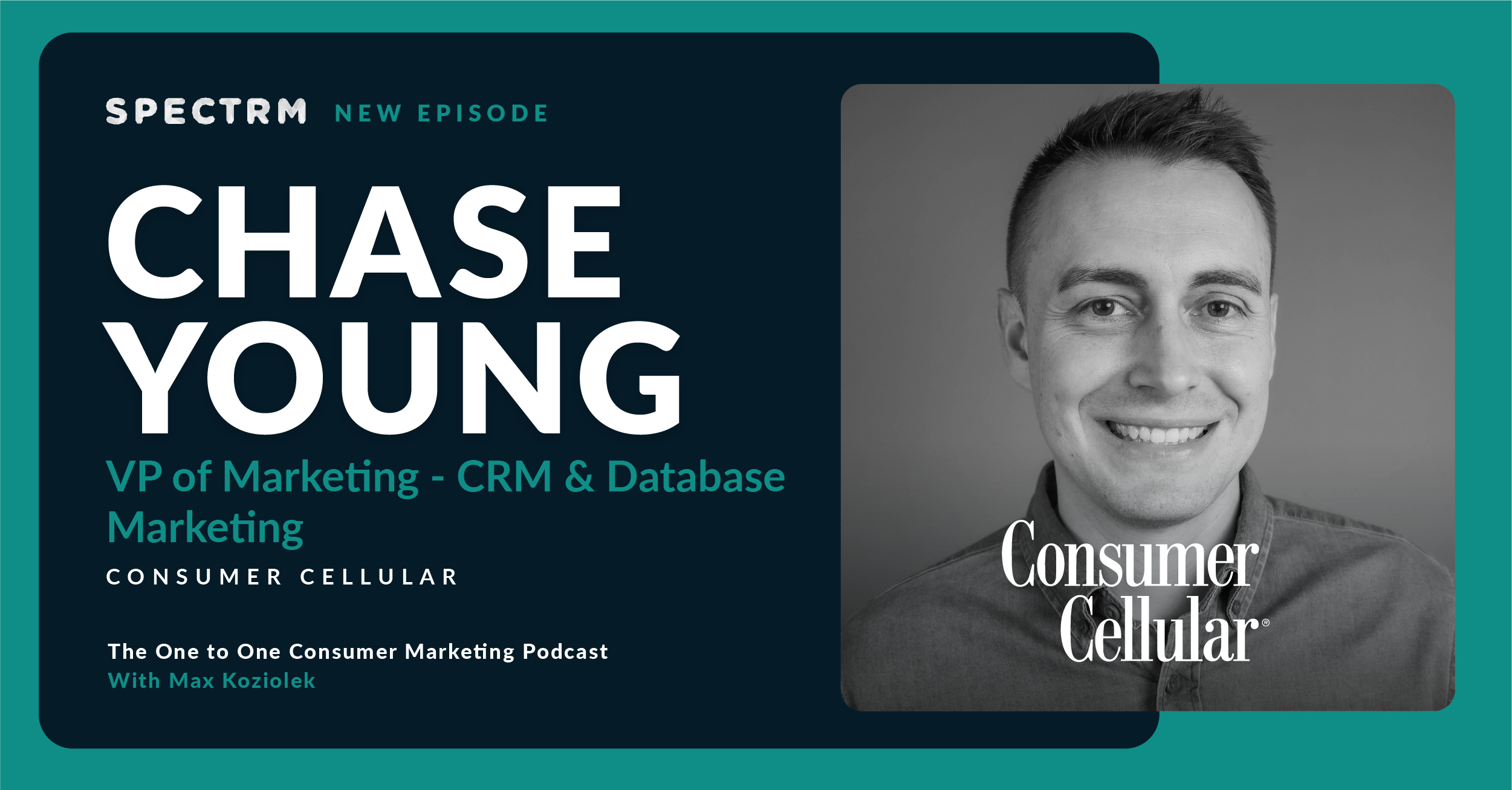Summary
Max speaks with Stephanie Horton, Senior Director of Global Consumer Marketing, Commerce at Google. They discuss how marketers should meet customers where they are on various channels, why you should focus on testing and experimenting with your channel mix, and how customer retention comes from solving customer pain points. They also talk about working with your product team to create the customer journey, how to get creative when there are budget constraints, and why marketers should prioritize gaining experience, not job titles.
Topics discussed
- The path of Stephanie’s career, from starting in finance, to becoming CMO of Farfetch, to Google inviting her to become the Senior Director of Global Consumer Marketing.
- How to effectively approach your channel mix, and why it’s crucial to try new channels, yet test and learn as you go.
- The importance of retention and solving customer pain points, especially at a maturing brand like Google.
- How the marketing team works with the product team to understand the customer journey and create a better value proposition.
- Why the biggest challenge to marketing today is constrained budgets, and how that can push you to be creative.
- Advice to young marketers on why it’s better to chase after experiences than job titles.
So I think, for sure, like any other company that sells a product or service, retention is really important, especially because now it's not the only game in town, there's other places to do all of these things. So making sure that we're maintaining the best product and making sure that we are understanding what people like, don't like, and trying to fix those pain points and that we're solving pain points is important.
Guest biography

- Senior director with 10+ years of experience in global consumer marketing, especially in the fashion and e-commerce industries.
Company overview
Google builds products that help create opportunities for everyone, whether down the street or across the globe. Bring your insight, imagination and a healthy disregard for the impossible. Bring everything that makes you unique. Together, we can build for everyone.
Industry: tech | https://about.google/
Subscribe to the podcast newsletter
Transcript
00:00
Stephanie Horton
So I think for sure, like any other company that sells a product or service, retention is really important, especially because now it’s not the only game in town. There’s other places to do all of these things. So making sure that we’re maintaining the best product and making sure that we are understanding what people like, don’t like and try to fix those pain points and that we’re solving pain points is important.
00:32
Max Koziolek
Hey, everyone, and thanks for listening to the One to One Consumer Marketing Podcast. Today I’m speaking with Stephanie Horton, Senior Director of Global Marketing at Google. Stephanie, thanks for chatting with me today.
00:44
Stephanie Horton
No, happy to be here.
00:45
Max Koziolek
Before we get started, why don’t you tell us a little bit more about yourself, your background and how you ended up leading global marketing at Google.
00:54
Stephanie Horton
Yeah, I’ve had a little bit of a winding path of a career. I’ve done a lot of things. I started out in finance, actually, then went back to business school and transitioned midway through to marketing. So I graduated with a know in marketing and entrepreneurship. I then went on to actually work at an agency in Chicago called Draft Worldwide. Back then, the focus really was direct marketing. We had a lot of automotive clients, from Cadillac to Audi. So it was like how to basically get people in cars and how to sell more cars, and what creative ways can we do that? I will say they had an agency called KBA Marketing, which was probably was one of the first experiential marketing companies.
01:35
Stephanie Horton
So I think before social media, before influencers, this was our way of kind of making sure that, you know, touch different people and partnerships and do things in a way that was a little more viral and a little less traditional. So I think I had my first taste of that. Then I then moved on to a bit of publishing. I worked in strat planning for the New York Times. I worked as executive director of marketing services at Vogue. I then did e commerce. So from Vogue, I ended up going to Shopop. Actually, Amazon had just acquired them and they were looking for someone to run their marketing team with, like a non traditional background.
02:16
Stephanie Horton
And I think that was exciting for me because going from publishing, which mean it was in Vogue, so were doing a lot of things that were out of the box. It was still pretty traditional marketing, and digital marketing was just starting to, so. And we’re better to learn that than Amazon. And then from there, I ended up moving to London for almost six years to be CMO of Farfetch, and then moved back to take a chief strategy officer position at Alexander Wang, where I ended up actually being co CEO. And then Google started calling me about this job and it was interesting and it was scalable and it’s Google. So here I am.
02:55
Max Koziolek
That’s an amazing career. And before we move on, probably to go into a few points, you mentioned you were also co CEO at Alexander Wang, so you’re the CEO.
03:06
Stephanie Horton
That’s amazing.
03:07
Max Koziolek
How does it change? Right. So usually, I don’t know, CMO has to ask her for budget and so on. But how does it change if you’re also the co CEO?
03:15
Stephanie Horton
Yeah, I mean, when I took the position, it was really to focus on strategy and less about marketing from what I came there for was a pretty easy transition because I was kind of doing that role anyway as the chief strategy officer, because the job really was to look at the company on a more macro level and understand new revenue streams. How do we grow? What maybe do we need to. It’s kind of like stop start, continue. Like, what maybe should we not be doing? What should we be doing? Where are we doing really well? So it really was going back to my roots of more know strategic planning, know finance, of really being able to look at something from a big picture point of view and chart a path of where it should go.
03:59
Stephanie Horton
And I think that really led me to this position, because while it’s global, marketing is a lot of strategy, and this was something that Google Shopping had been a lot of iterations and forms before I came. So it really was about working with the product team and engineering leadership and being like, hey, what is this product? How do we form it? What is the consumer proposition? What is the value proposition? And really going forward from there.
04:25
Max Koziolek
Yeah. Before we come to Google and your current role, how big was Farfetch when you joined as a CMO? Because it was a big jump. Right. So you moved from the US to London, took the CMO role. How big was far fetch back then?
04:38
Stephanie Horton
Yeah, when I went to Farfetch, it was still pretty small. I went at the end of 2012, so I think were probably just opening the US office. I remember, I think it was still hard hat when I started, so we ended up with nine offices by the time I left. So I think that was the second office outside of London, and the revenue was probably around 300 400 million. So a big jump from when I started to when I left, growth was think, you know, Jose, who’s a founder, such a think, you know, was just really ahead of his time in kind of being able to revolutionize the way people shop and come up with new ideas along the way. So it really was like high growth, just high functioning.
05:24
Stephanie Horton
I think there was also a lot of inflection points that happened while I was there. Social media really just came to light in 2010. So you had all these new channels that were also really coming online and available to effectively market. So not only were we growing a business that was quite untraditional in that it was a marketplace, there were also all these new levers to pull in digital marketing and social media that were pretty new at the time. So it was an interesting time.
05:54
Max Koziolek
It sounds great. Maybe that’s a good segue, because new channels are always interesting, but also the channel mix and how things are changing. How do you see that in your current role? How do you look at the different channels for Google?
06:07
Stephanie Horton
Yeah, I think you always have to look at the efficacy of the channel and what’s right for you. I’m a big test and learn person, and sometimes we learn that actually we’ve done it five ways. We’ve tried six ways to make this effective and it just doesn’t work. So let’s lower our spend here and lean into what’s really working. But I am a big believer in trying everything. I think it’s important, especially now that there are so many ways that people, especially for what I do, shopping and there’s so many mediums that people are on to find this information. I think it is important to meet customers where they are. They shouldn’t have to find you. So I think trying new things and trying out new channels is really important. But I think you do have to measure efficacy.
06:55
Stephanie Horton
It’s not worth throwing money at something that obviously is not doing anything for you. But I think sometimes it didn’t work the first time, but we’re like, okay, maybe if we use this approach and then suddenly we’re getting a return. So I think test and learn is the way.
07:10
Max Koziolek
I think Google is famously testing a lot, right? So it’s very deeply engraved into the culture of Google, testing every button and every color scheme of mean. But that’s the core of marketing for you as well. When it also comes to lifecycle and retention. Is there an aspect where you have to, how you look at this from a Google perspective, so you have customers that go through a lifecycle. How do you think about, I mean.
07:37
Stephanie Horton
Definitely, you know, if you look at Google, it’s not a young company anymore, it’s a more mature company. And as that happens, you have to actually look at how people are using your product, how often they’re using your product, how often they come back and really start to look at and set measures to make sure that you’re retaining them or at least measuring where there’s fall off or where people aren’t doing it. So I think for sure, like any other company that sells a product or service, retention is really important, especially because now it’s not the only game in town. There’s other places to do all of these things.
08:16
Stephanie Horton
So making sure that we’re maintaining the best product and making sure that we are understanding what people like, don’t like and try to fix those pain points and that we’re solving pain points is important.
08:30
Max Koziolek
That sounds familiar. And I know a lot of marketers that are working for trying to retain customers for software products and are having very close discussions with product teams in order to enable this. How do you work with product together to achieve retention?
08:49
Stephanie Horton
Yeah, I mean, so one of the main focuses of my team, product marketing is to work with the product team to make sure that there is a really good consumer value prop when we go to market with products. And that once they’re in market, that we’re really looking at making sure they’re not one hit wonders and making sure that there’s a usefulness that people have throughout time. So it is working with the product team. They’re brilliant here. But sometimes it’s like, okay, this is great, but is this going to be a one off, or does this customer journey actually work? Or is this something that we think a customer needs to use multiple times? So it’s just really asking the right questions, putting it through several litmus tests and making sure that we’re surfacing any concerns within the GTM process.
09:38
Max Koziolek
That sounds like a very complex process. You’re going not.
09:42
Stephanie Horton
It probably sounds more complex than it really is, but yeah, for sure there is a process just like anything else. Like if you are bringing clothing to market, you’re going through the test of making sure that it has longevity and that people are going to come back next season and that the quality is right. So I think it’s just the same kind of going through those checks and balances and making sure that we’re putting out something that people actually want and need and not just stuff that we’re just kind of like, this is cool. There’s some of that, too. But even if we do that, we want to make sure that it has some sort of use case or we’re solving some sort of problem.
10:19
Max Koziolek
Yeah, makes sense. Makes sense. A combined question. Right. So we’re two aspects of the same. What do you think is currently the biggest challenge for you in your job. And the other question or the other side of that, what excites you the most about running global marketing for Google?
10:36
Stephanie Horton
Yeah, I think my challenge is probably every marketer’s challenge is as budgets tighten and macroeconomic headwinds happen, your budget is smaller, so you have to do more with less. And I always think, though, it’s always an opportunity to see how we can work smarter. But it’s a challenge when the expectation is to deliver X, but maybe there’s less budget to do it. But I think if you look at it a bit as an opportunity, you can find ways to break through. But then I think that is where you need to be really scrappy and unconventional and look at alternate routes and look at alternate ways to market and not be so traditional in the approach of like, okay, these are the only three ways we can reach people. So I think that is when it’s fun to be creative, and that’s what I think.
11:26
Stephanie Horton
It’s also fun to make sure you have a great team with lots of diversity and age, race and everything, so that people are bringing stuff to the table. I mean, some of the younger people in the team, I’m like, I’ve never heard of that, but it sounds really cool. Let’s try. So I think it’s important to have a real diversity of thought on the team so that you’re getting all of those new ideas that you wouldn’t have thought of. And I think as far as Google, I think the number one reason why I came here and I worked here is, like, the impact that we have. I think we are able to do stuff at scale.
11:59
Stephanie Horton
So you really do see how you’re helping a small business or you’re helping a merchant, or you’re helping a consumer find something, and you’re seeing that at scale with some of the tools and technology that we built. And obviously, being here at this time, where AI is a big deal, so being here at this time is amazing. Just to be able to learn and kind of be at the forefront of what’s happening is really exciting.
12:23
Max Koziolek
Yeah. You’re probably one of the marketers with the biggest impact and scale out there, right?
12:29
Stephanie Horton
Yeah. But it’s a nice, I’ve been on both sides where you had, like, $5 and smaller impact, and here where, like, you know, you actually see the results of your work in market because so many people use Google. Right. So you can see how it’s helping people find things, or on the merchant side, how some of the tools are really helping people grow and expand their business and it’s just a good thing to be able to see and participate.
12:57
Max Koziolek
In from someone like you who started, you worked with $5 budget to now much more zeros behind that, I would assume. What’s your advice you would like to give your younger self? If you would start again? Or what kind of advice would you give out to people right now who are in this pre and want to make their way up?
13:21
Stephanie Horton
I would say try everything as you heard in the beginning. I’ve tried a lot. I’ve done a lot of things. And I would say, don’t sacrifice experience and scope for titles and things that you may think you need to be doing. Because I think for me it was always about, what is this job? What can I learn? What’s the scope? Where’s the hole in my resume that I can fill with this, rather than like, I need to be a VP or I need to be this? And I think you’re more successful that way because you actually learn a lot more. And I think you end up having a lot more to offer than when you follow a very narrow path forward. And I think these days, one of the things we talked about before we started, like what’s different in marketing now?
14:05
Stephanie Horton
I think these days it is about the approach. And I think there’s less rules than there were before. I’ve been working a long time, been working almost 30 years. And I think back when I started, there was like four channels to market in. It went this way. There weren’t lots of choices. So I think the abundance of choices and avenues and channels that we have to try today, I think is what makes it fun. And you can almost make it what you want it to be, which I think is a really good place to be in. So I think if you have the right strategy and the right approach, it’s just putting together all the pieces and you can be unique. I think this is like, again, 30 years ago, everyone was doing the same thing.
14:48
Stephanie Horton
Everyone was in the same ten magazines, same billboards, same TV. You know what I mean? Like it was a sea of sameness. And these days, I think you can really break through and find your own voice, which I think is great.
14:59
Max Koziolek
Yeah, absolutely. And I think also making bets, right. On different channels, because you have so many different ways that are happening. And not only you can make bets on companies like you did with Farfetch, which turned out to be amazing, but also bets on channels, bets on skills. Right. What is needed in the future. I think that’s also something that is very impactful if you have the right bet, right?
15:20
Stephanie Horton
Yeah, for sure.
15:22
Max Koziolek
If you look forward five years from today, how does the world in marketing look like? What do you think?
15:28
Stephanie Horton
What’s your prediction? That’s, like, a hard question. I mean, I think there’s, like, a lot happening right now. So I think, obviously, there’s the future of AI, so it’ll be interesting to see how that starts to shape our world and different ways of looking at things and doing things. I think, where will social media stand? I think there’s so many questions. I feel like we’re at an inflection point of so many different things that for me, it’s hard to predict where we are in five years. I think five years ago, I probably could have made a prediction, but now I do feel like there’s so many things in motion and we’re at the forefront of so many things that I’m not sure. I think the one thing I do know is that it’s just about being able to keep up when there’s something new.
16:12
Stephanie Horton
Let’s try it. And I think the only way that you really learn and understand is if you try it. So it’ll be interesting to see how certain channels start to shape out and how certain technologies start to contribute to the cause and, like what we do.
16:28
Max Koziolek
We have the full loop here. Right. So at the beginning, you were saying that when you were far fetched, which was such an accelerator, I think also for you, seeing probably ten X growth or something like that, probably more than that, social media was an inflection point. Now you see more inflection points are even happening. Even. But I think now it’s an exciting time to make bets and make moves in that I think when things are.
16:54
Stephanie Horton
Changing, it’s the best time. Right. Because you can just jump in and figure it out. I think when things are really established and it’s like, these are the five things you’re supposed to do, that’s kind of boring to me, because then it’s just like, why do you need me? There’s a cookie cutter. There’s a floor plan for what we’re supposed to do. So that’s not fun.
17:15
Max Koziolek
All right, Stephanie, thank you so much for that conversation. It’s a very interesting time indeed. And, yeah, I hope that all people are jumping, trying out new things and making bets on channels, making bets on methods, making bets on AI. I think that’s a very exciting time. Stephanie, thank you so much for.
17:33
Stephanie Horton
No, thank you for having me.
